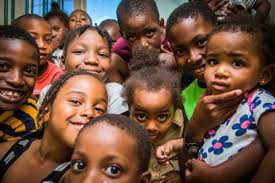Caricom : Cash, Citizenship and Babies
We note with some trepidation, the efforts made to maintain
socio economic progress in the region. While we are not unaware that these efforts,
are perhaps made with the best of intensions by our governments, we think it
exceedingly necessary, to offer some comment and concerns. We are of the strong
belief, that if we do not make realistic and prudent decisions now, we will
continue to be constantly finding ourselves in dire economic straits. We are
concerned with the undeniable fact, that COVID-19 and its deleterious effects
on regional economies, can force our leaders to embrace policies that may not
be in the best interest of future generations.
There are some countries that have already embarked on
citizenship by investment programs. Contrary to popular belief, such programs
are not only found in struggling economies. They offer citizenship to often
wealthy individuals who in turn invest in the country. However, all those who
seek this facilitation do not always invest but engage in leisure and other
activities. It is known that such programs attract not only investors but others
of dubious character.
Quite recently , in an effort to replace and earn much needed
foreign exchange, that has been wiped out because of the effects, that COVID
has had on the tourism industry, some countries are offering foreign
professionals , who work from home, to consider working from “de islands”. This
initiative has gained considerable international attention.
The marketing of this venture is centered around the low
levels of COVID within the region. Tourism planners believe, that rather than
work from their North American homes, professionals will be enticed to come to
the region, on a temporary citizenship program. They will work in a more attractive
environment, and enjoy the beautiful beaches and laid-back atmosphere, while
avoiding the stress and anxieties of COVID in their countries. The entire idea
seems to be: “Work while living like a tourist”.
Such ventures seem quite innocent or non-threatening, but we
seriously believe, they are essentially non sustainable because they are short-term
measures, that impinge on the resources of the countries and create benefits
such as temporary employment. We are not convinced that creating relatively low-income
jobs, and then returning to their respective homes, will have any spin off, in
the creation of needed skills to the local populations.
Finally, we must express our views about the desire to
increase populations in some regional countries, that are faced with aging and
decreasing population growth. Many social scientist and economic planners
suggest that some islands are simply not producing enough babies. They predict
that unless some populations increase, there will be insufficient citizens to
not only service but to create additional services. In other words, a
concomitant fall in production will ruin the economies and make them less
competitive.
However, we fear that any increase of regional populations by
importing people from outside the region, may not be in our best interest. Our
economies are already fragile, and, in many cases, we are still grappling with
basic issues such as: proper water supply, public health, housing and
environmental challenges. We are already importing more than we export and we
have witnessed that COVID in a matter of months, have sunk our tourism industry
almost to the bottom of the economic ocean. There is a considerable body of
thought, that opines the Independence Experiment, is still a work in progress,
often undermined by exogenous developments.
We therefore must look at socio-economic policy from many
angles. We have seen what unbridled cultural penetration has done to us in the last half century.
The policies that have been raised in this article, force us to suggest that
the debacle which remains, is not how the region looks today, but how it will
look in the next fifty years.




Comments
Post a Comment